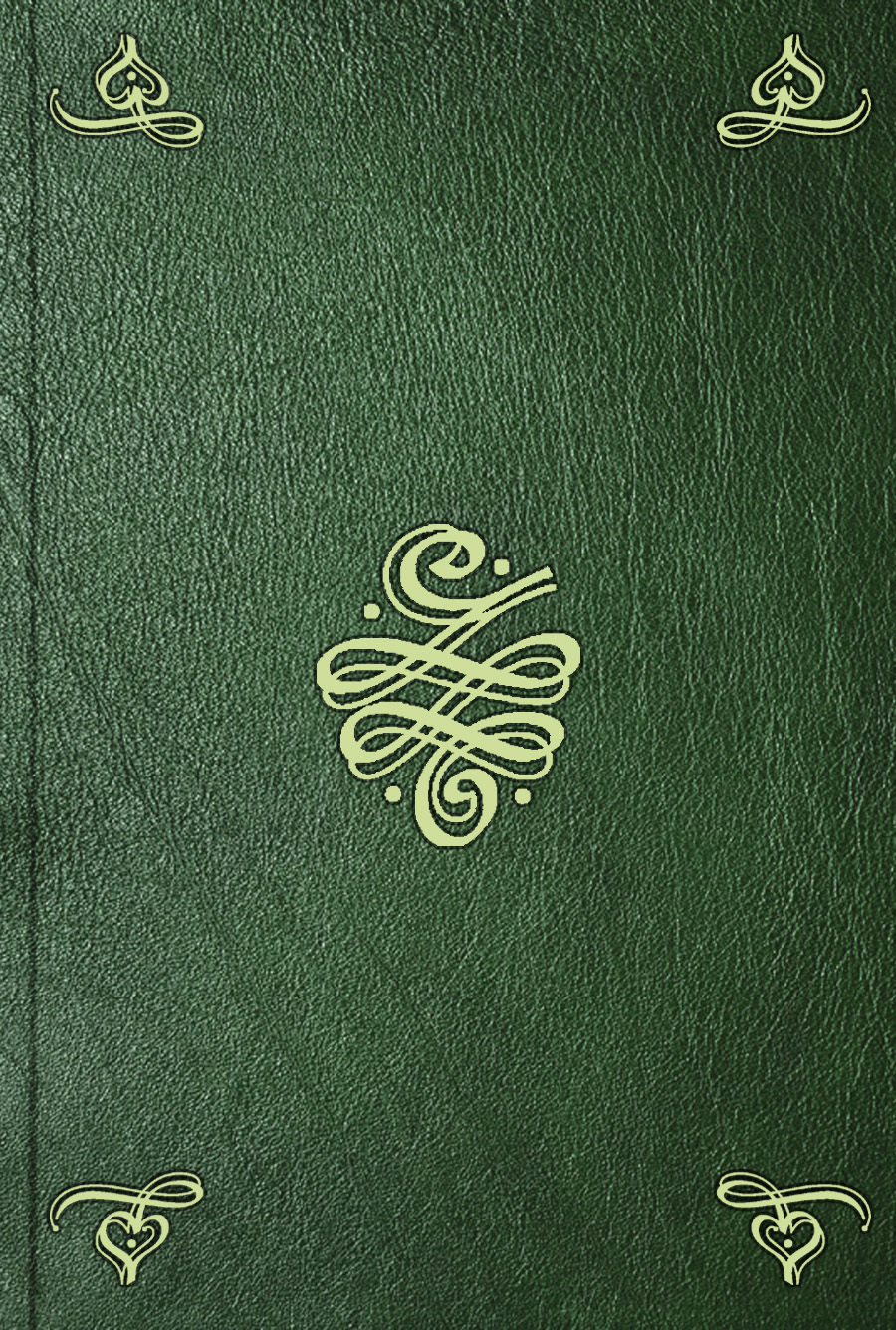Электронная книга: Georg Friedrich Parrot «Entretiens sur la physique. T. 4»

|
Примечание: Беседы о физике Полный вариант заголовка: «Entretiens sur la physique : T. 4 : avec 3 planches / par G. F. Parrot». Издательство: "Библиотечный фонд" (1821)
электронная книга Скачать бесплатно на Litres |
Другие книги автора:
| Книга | Описание | Год | Цена | Тип книги |
|---|---|---|---|---|
| Entretiens sur la physique. T. 3 | Примечание: Беседы о физике Полный вариант заголовка: «Entretiens sur la physique : Tome 3 : avec 4 planches / par G.F. Parrot» — Библиотечный фонд, электронная книга Подробнее... | электронная книга | ||
| Entretiens sur la physique. T. 1 | Примечание: Беседы о физике Полный вариант заголовка: «Entretiens sur la physique : tome premier : avec 2 planches / par G. F. Parrot» — Библиотечный фонд, электронная книга Подробнее... | электронная книга | ||
| Entretiens sur la physique. T. 5 | Примечание: Беседы о физике Полный вариант заголовка: «Entretiens sur la phisique : tome cinquieme : avec 3 planches / par G. F. Parrot» — Библиотечный фонд, электронная книга Подробнее... | электронная книга | ||
| Entretiens sur la physique. T. 2 | Примечание: Беседы о физике Полный вариант заголовка: «Entretiens sur la physique. tome 2 / par G.E. Parrot ; avec 3 planches» — Библиотечный фонд, электронная книга Подробнее... | электронная книга | ||
| Entretiens sur la physique. T. 6 | Примечание: Беседы о физике. Страницы с 386 по 903 Полный вариант заголовка: «Entretiens sur la physique : tome 6 : Avec 4 planches / par… — Библиотечный фонд, электронная книга Подробнее... | электронная книга |
Georg Friedrich Parrot
Georg Friedrich (Georges-Frédéric) Parrot (
Geroges-Frédéric Parrot was born in
Due to his extraordinary energy, he became the first rector of the
"While you are using with a laudatory diligence all that science and art are able to provide for the benefit of your culture, the countryman is working for you on his field; he is devoting his toil for you, working in the hardest conditions all his days, even part of the nights, and because of that he is enforced to fall behind you in his cultural development. [...] You understand that those who feed you are entitled to much more than merely a miserable existence, that they have every right to expect your gratitude, your respect, our gratitude, our respect."
According to the memoirs of Parrot’s contemporaries, these words made an inextinguishable impression. However, Parrot’s hour of triumph arrived on
In 1811, Parrot was elected to be a corresponding member of the Academy of Sciences of
Источник: Georg Friedrich Parrot
См. также в других словарях:
Entretiens, Roger Vailland — Auteur Max Chaleil Genre Essai Biographie Pays d origine France Éditeur Subervie … Wikipédia en Français
MPMA sur 100 mètres — 100 mètres (athlétisme) 100 m … Wikipédia en Français
Liste De Livres Sur La Danse — On trouvera ci après une liste de livres relatifs à la danse, au ballet, à l histoire de la danse, etc., classés par auteur. On se limitera à citer l édition originale. Sommaire : Haut A B C D E F G H I J K L M N O P Q R S T U V … Wikipédia en Français
Liste de livres sur la danse — On trouvera ci après une liste de livres relatifs à la danse, au ballet, à l histoire de la danse, etc., classés par auteur. On se limitera à citer l édition originale. Sommaire : Haut A B C D E F G H I J K L M N O P Q R S T U V W X … Wikipédia en Français
Point de vue mormon sur l'homosexualité — Selon l Église de Jésus Christ des saints des derniers jours, l’homosexualité est officiellement perçue comme un ensemble «de pensées, de sentiments, et de comportements», et non pas comme une «condition» immuable, ou l’indication d’une… … Wikipédia en Français
Accord en 17 points sur la libération pacifique du Tibet — Titre Accord entre le gouvernement central populaire et le gouvernement local du Tibet sur les mesures de libération pacifique du Tibet. Pays Chine … Wikipédia en Français
